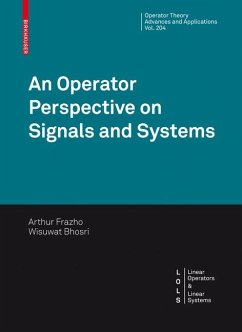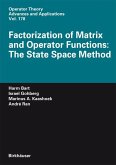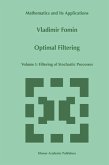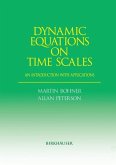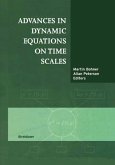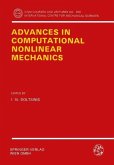Dieser Download kann aus rechtlichen Gründen nur mit Rechnungsadresse in A, B, BG, CY, CZ, D, DK, EW, E, FIN, F, GR, HR, H, IRL, I, LT, L, LR, M, NL, PL, P, R, S, SLO, SK ausgeliefert werden.
Hinweis: Dieser Artikel kann nur an eine deutsche Lieferadresse ausgeliefert werden.
"This monograph combines operator techniques with state space methods to solve factorization, spectral estimation and interpolation problems arising in control and signal processing. ... In general, the book lays out intricate ideas in a relaxed one-step at time style and hence should be accessible for beginners in the subject. In addition, the novel way in which known material is interrelated should make the book informative for experts as well." (Joseph A. Ball, Mathematical Reviews, Issue 2011 a)
"This book covers a number of fundamentals of signal and system theory mostly concentrating on the state space methods combined with application of operator techniques. ... It is of interest for studying and teaching mathematical fundamentals of engineering solutions developed for signals and systems analysis, and can be recommended for both engineers interested in deeper understanding of modern and classical mathematical results ... and pure mathematicians for taking a wider view on solutions recently deployed for signals and systems." (Denis Sidorov, Zentralblatt MATH, Vol. 1218, 2011)

